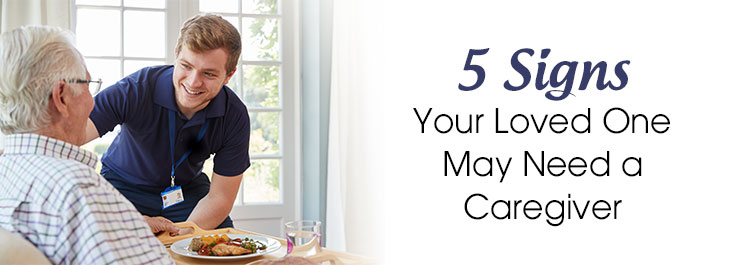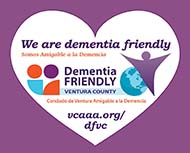Studies have shown that the majority of seniors wish to age in the comfort of their own homes. For families, this presents a challenge. How do you know when it’s time to get your loved one the additional help that they need? As your parent or loved one age, completing daily tasks can become more difficult and learning to recognize the signs can help prevent injuries and incidents from occurring. Signs can come in various forms, some more subtle than others. To help you take a proactive approach to your loved ones care, here are 5 signs that you don’t want to ignore.
Change in Appearance
One of the first things you may notice is your loved one’s appearance. Make note of their clothing and how it fits or if they are wearing the same clothes multiple days in a row, does their hair look clean or is it unkempt, or do they look tired and weak? An unkempt appearance including the lack of basic hygiene and personal grooming can be a sign of their inability to complete daily tasks or more serious problems such as dementia requiring assistance. Caregivers can help your loved one with laundry, meal preparation, and personal care.
Worsening Home Environment
When you visit your loved one at home take a look at your surroundings. Does their home look neat and clean? Pay attention to whether there are dishes piling up in the sink, expired food in the refrigerator, or belongings strewn around the house. A messy home may indicate that your loved one no longer has the ability to clean and pick-up after themselves as often and creates safety and fall hazards. Caregivers can assist with light housekeeping to keep your loved one’s home a clean and safe environment for them.
Decreased Physical Activity
When spending time together observe how well your loved one gets around. Pay attention to how they walk and their balance, the ease in which they handle objects, and their energy levels. Changes in their ability to get around, pick-up and put down items around the house, and their stamina may be signs that they need additional help. Caregivers can help your loved one move around their home and assist with daily tasks to help prevent falls and injuries.
Forgetfulness
If you start to notice that your loved one is often confused, missing appointments, or letting their mail pile up these could be signs that they are having difficulty remembering important tasks on a regular basis. This can lead to more serious problems like forgetting to take their medications or pay their bills. Caregivers can help your loved one organize their schedules and stay on top of their day to keep them on track.
Emotional Lows and Highs
Frustration, increased or extreme mood swings, and a loss of interest in activities are all warning signs that your loved one may be experiencing depression or loneliness. If you begin to feel a disconnect between you and your loved one, it may be time to enlist the help of a caregiver. During their visits caregivers can provide social interaction with your loved one, assist with activities to help keep them interested in the things they love, and provide companionship all of which are important to their overall wellbeing.
To learn more about the services Assisted offers and how you can keep your loved one happy and healthy, visit www.AssistedCares.com.








